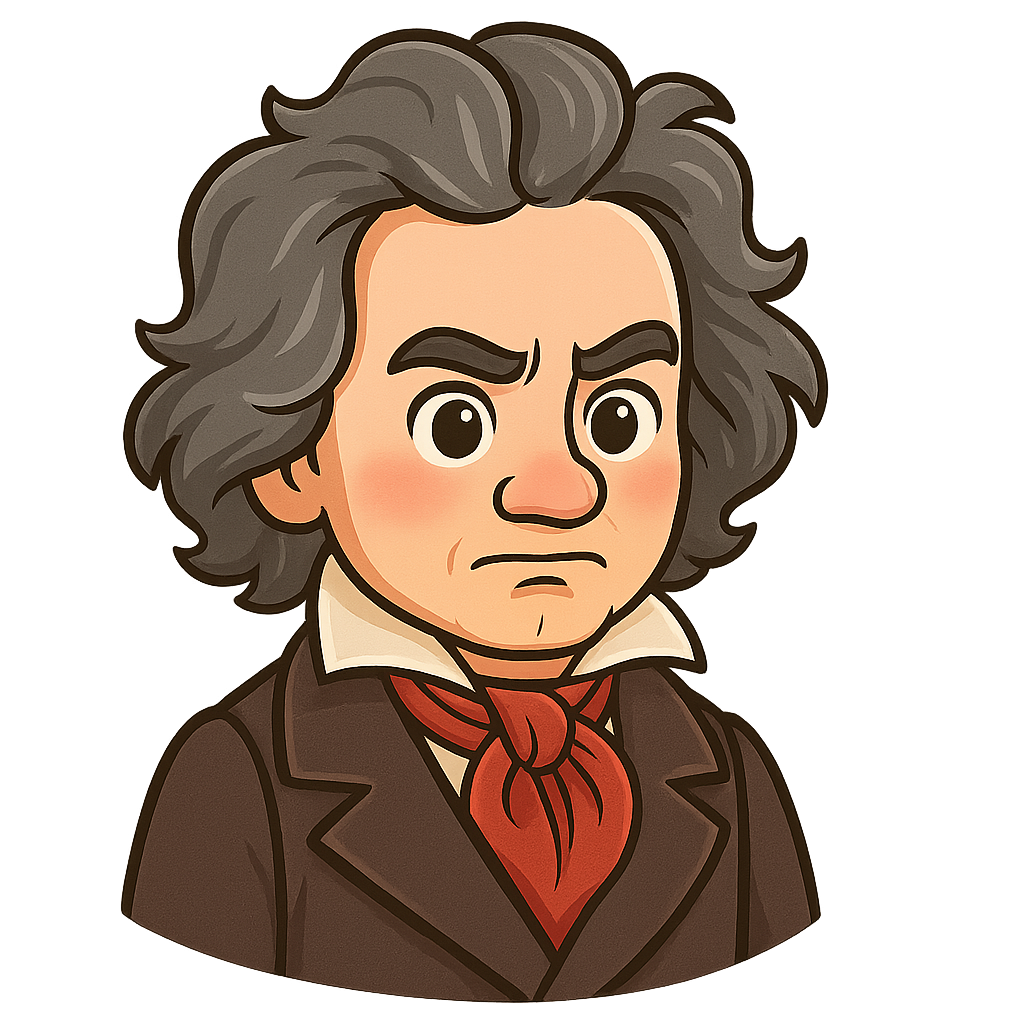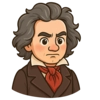Ludwig van Beethoven: A Story of Music and Courage
Hello! My name is Ludwig van Beethoven. My story begins in a cozy little town called Bonn, in Germany, where I was born way back in 1770. My house was filled with music from the very start because my father, Johann, was a singer. He saw a spark in me and decided I was going to be a famous musician. He was very strict and would make me practice the piano for hours and hours, even when I was very small. Sometimes my fingers would ache, but even then, I loved the sounds the piano could make. I would sit and improvise, which means I made up my own music on the spot. It felt like telling a story without using any words. I gave my very first public concert when I was only seven years old! People were amazed that such a little boy could play with so much feeling. Music was my best friend, my secret language, and I knew, even then, that it would be my whole life.
When I was twenty-one, in 1792, I packed my bags and moved to the most exciting place a musician could be: Vienna! It was the musical capital of the world, a city buzzing with orchestras, operas, and brilliant composers. I even got to take lessons from the famous Joseph Haydn for a little while. At first, people in Vienna knew me as a fiery piano player. I was famous for my powerful and emotional performances. I would play in the fancy salons of princes and counts, and sometimes I would challenge other pianists to musical 'duels.' I almost always won! But playing wasn't enough for me. The music in my head was getting bigger and bolder. I started writing my own symphonies, sonatas, and concertos. I didn't want to just write pretty music like everyone else; I wanted to write music that was full of storms and sunshine, struggle and victory. I wanted my music to tell the story of what it feels like to be human.
But then, a terrible thing began to happen around 1798. A strange buzzing started in my ears, and slowly, the beautiful sounds of the world began to fade away. I, a musician, was losing my hearing. Can you imagine anything worse? For a while, I was filled with despair. I felt so alone and scared. In 1802, I even wrote a secret letter, which is now called the Heiligenstadt Testament, about how sad I was. I felt like giving up. But then I thought of all the music still inside me, all the melodies and harmonies no one had ever heard. I couldn't let them stay trapped in silence. I made a decision. I would not let my deafness stop me. I would fight it with all my strength and pour all my feelings—my anger, my sadness, and my hope—into my compositions. My art would save me.
From that moment on, my music became even more powerful. Even though I couldn't hear the orchestra play, I could feel the vibrations of the instruments through the floor, and I could hear every single note perfectly in my mind. I composed my most famous pieces during this time, including my incredible Ninth Symphony. For the very first time, a symphony included a choir of singers! The final part, called 'Ode to Joy,' is a song about universal love and friendship. When it was performed for the first time in 1824, I stood on the stage. I couldn't hear the thunderous applause at the end, so one of the singers had to gently turn me around to see the cheering crowd. My life ended in 1827 after a long illness, but I never gave up on the music inside me. And I hope that when you hear my music, it fills you with joy and courage, reminding you that even in the darkest times, there is always beauty and hope to be found.
Reading Comprehension Questions
Click to see answer



